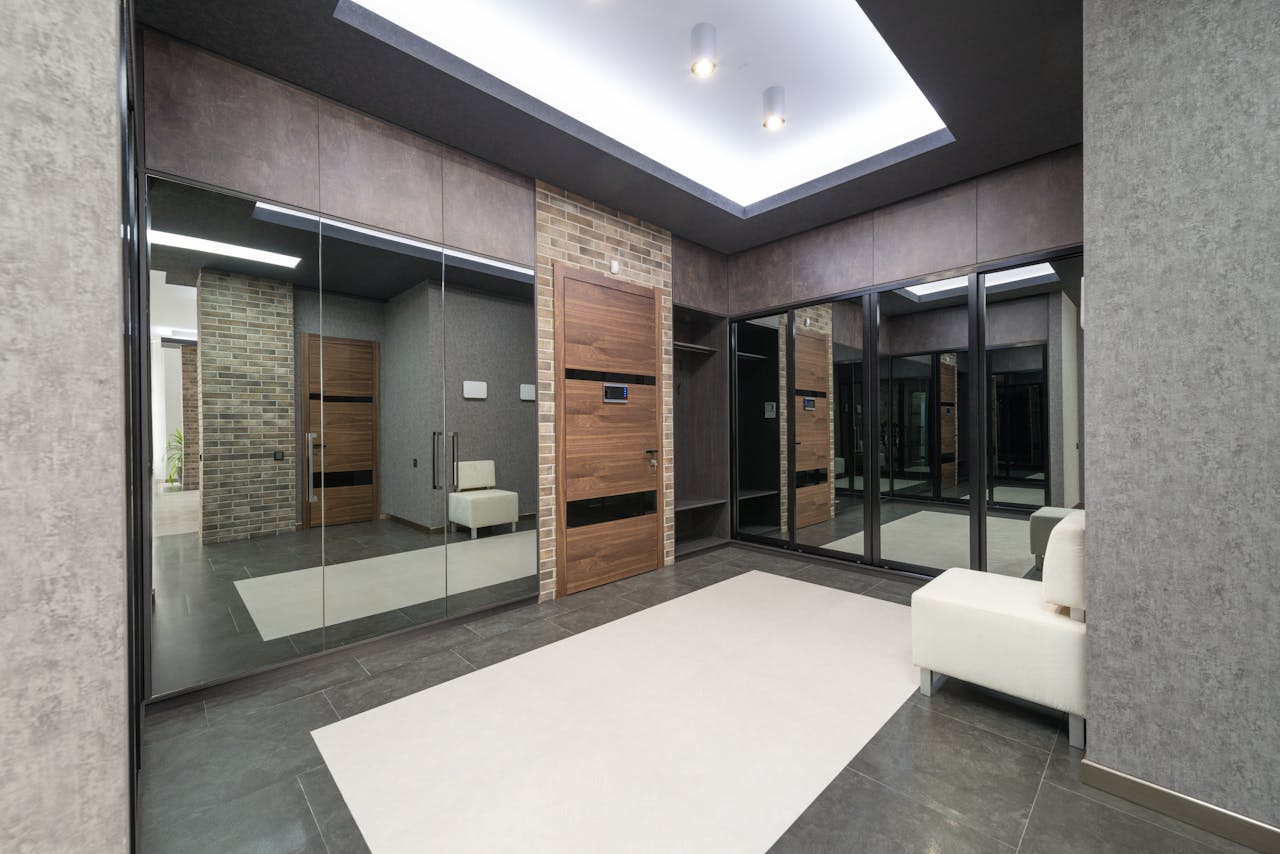The lifespan of your epoxy floor depends on several factors, including the quality of the product used and the conditions in which it’s laid. In commercial and industrial settings, heavy traffic and the use of machinery will affect how long your flooring lasts.
Regular inspections and maintenance practices also play a major role in determining the longevity of your floor. Timely repairs of small flaws will prevent them from escalating into larger issues.
Durability
Epoxy flooring is durable, long-lasting, and aesthetically pleasing. It is often used in commercial and industrial areas, as well as residential garages, because it provides a hard surface that is resistant to wear and tear and can easily be cleaned and maintained. Properly laid epoxy flooring will last for 10 to 30 years, depending on the environment in which it is installed.
The durability of epoxy floors depends on many factors, including the amount of traffic and heavy machinery it is exposed to. A floor in a manufacturing plant, for example, will be subjected to greater stress than a garage floor that is not used for any heavy industrial activity. Another factor is the type of epoxy coating. Some epoxy coatings are more durable than others, and this is reflected in the price of the product.
Another important factor is the quality of the installation. It is essential that the underlying concrete has been prepared properly and that cracks have been filled. The surface must also be free of oil, grease, solvents and dust. If these steps are not taken, the epoxy flooring may have a short lifespan.
During the curing process, it is also vital that the floor is not exposed to direct sunlight. The UV rays from the sun can cause the epoxy to degrade quickly, which is why it is recommended to use a UV-resistant epoxy.
Epoxy is a tough material that can resist many different chemicals and stains. It is also nonporous and is easy to clean, making it a popular choice for kitchens and bathrooms. Its resistance to chemicals and stains means that it will continue to look good for a long time.
Epoxy flooring is also an excellent option for warehouses and other commercial facilities because it can withstand high volumes of foot and vehicle traffic. In general, however, the durability of epoxy flooring is dependent on its installation and maintenance. Epoxy vs. Traditional Garage Flooring in South Florida often sparks debates regarding durability and weather resistance. Regular sweeping and cleaning will help to keep the floor looking its best. It is also important to report any areas of damage so that they can be fixed as soon as possible to prevent the problem from worsening. Regular recoating and retexturing will also help to prolong the life of your epoxy flooring.
Aesthetics
The first impression of a room can make or break the overall feel, and the flooring of a space is no exception. Rather than a drab and uninspiring concrete slab, epoxy flooring can create a vibrant and beautiful canvas. This material is available in a variety of colors and designs, so homeowners can select an aesthetic that best matches the décor of their home.
Epoxy is also a great option for businesses that need to protect floors from spills and other damage. It creates an impenetrable seal, which helps to keep water and other toxins from seeping into the floor and damaging it. This is especially important for areas that frequently experience water leakage or flooding, such as manufacturing plants and warehouses.
Another benefit of epoxy is its ability to withstand impact. This feature makes it an excellent choice for heavy traffic areas, such as commercial spaces or retail stores. Epoxy flooring can withstand the heaviest foot traffic and is durable enough to hold furniture, machines, and other equipment without sustaining damage.
The lifespan of an epoxy floor depends on a number of factors, including the quality of the product and the installation process. Cheaper products and improper preparation can result in subpar coating systems that will wear out much more quickly than those made with premium materials and proper installation techniques.
Regular maintenance is also key to preserving the life of an epoxy floor. Sweeping or vacuuming regularly to remove dirt, dust, and grit will help prevent premature damage to the surface. Regular mopping with a pH-balanced cleaner will also maintain the sheen of the floor and extend its lifespan. It’s important to avoid using cleansers with abrasive properties that could damage the floor’s surface.
It’s also essential to protect your epoxy flooring from damage by using walk-off mats at entranceways. Similarly, if you’re planning to move any heavy furniture or equipment on your new floors, it’s recommended that you place pads under the items to prevent scratching or denting the epoxy. Lastly, it’s always recommended to contact a professional when scheduling any repairs or cleaning services.

Foot traffic
Epoxy floors are durable, but they can still suffer from regular wear and tear. The lifespan of your epoxy flooring depends on the quality of materials, installation and maintenance practices and environmental conditions.
A qualified concrete contractor will understand all the variables involved in the installation and will take these into account to ensure your floor lasts as long as possible. They’ll know how to prepare the surface properly and use the best products for a successful result. Additionally, they’ll know how to address any potential issues that may arise during the process.
Another important factor in the longevity of your epoxy floor is the level of traffic it receives on a daily basis. If your floors are exposed to heavy traffic, they’ll likely experience scuffing and scratches. This is normal for all types of floors, but these scuffs and abrasions aren’t just unsightly – they’ll also impact the structural integrity of your epoxy floor.
Other factors that can affect the longevity of your epoxy flooring include exposure to chemicals and extreme temperatures. While epoxy is extremely strong, it does not hold up well to exposure to certain chemicals and toxins. This is why it’s important to choose a chemical-resistant epoxy coating when installing your floor.
Epoxy is also vulnerable to the effects of direct sunlight, which can cause it to fade and deteriorate over time. This is why it’s recommended to install UV-resistant top coats in areas that are subjected to constant sunlight.
The most important thing to keep in mind when it comes to the lifespan of your epoxy floors is that they’ll only last as long as you take care of them. By following a regular cleaning and maintenance regimen, you’ll be able to extend the lifespan of your epoxy floors significantly. Sweeping your floors daily to remove any abrasive particles and dust is crucial, as is mopping them with a mild cleaning solution on a weekly basis. By keeping up with these routine tasks, you’ll be able to enjoy your beautiful epoxy floor for as long as you own your property.
Maintenance
Although epoxy is incredibly durable and chemical resistant, it still needs to be maintained in order to maintain its integrity and beauty. If you sweep your floors and use a dust mop regularly to non-abrasively lift any dirt or grit, this will help prevent scratches that can damage the surface of your epoxy floor coating. Additionally, it is important to avoid using any cleansers or chemicals with abrasive properties on your epoxy flooring as this can dull the sheen and make it look chalky. Use pH-balanced cleaning solutions to keep your floors looking shiny and new.
Another factor that affects the longevity of your epoxy flooring is the amount of traffic it receives on a daily basis. Epoxy that is used in manufacturing plants or other areas with heavy machinery tends to wear down more quickly than residential epoxy flooring.
If your floors are prone to oil or grease spillage, it is also essential that you scrub them down on a regular basis. Depending on the level of soilage, this can be done weekly or bi-weekly, with either a mop and bucket or a mechanized scrubber. If you notice that your floor is starting to look worn or scuffed, it may be time for a repainting.
When you are considering re-epoxying your flooring, it is important that you give yourself plenty of time to let the new floor cure. This can take up to 28 days, but once it is fully cured, your flooring will be as strong and long-lasting as possible. If you need to work on the floor during this period, be sure to put down some cardboard or tarps over your floors to protect them from damage and to keep dust and debris from getting on any furniture or equipment that is still in the area.
If you are looking for a solution that will last years and provide a beautiful finish to your floors, epoxy is the way to go. With proper maintenance, this type of floor will last far longer than a traditional concrete flooring. With its durability, chemical resistance, and customization, epoxy is a great choice for a wide range of applications.

